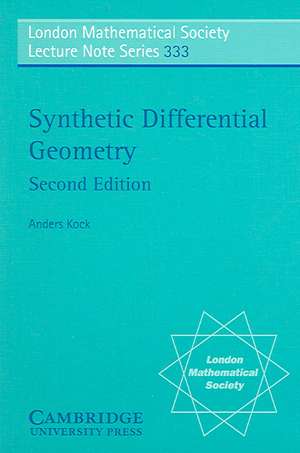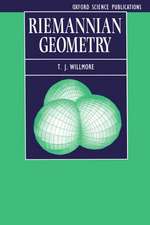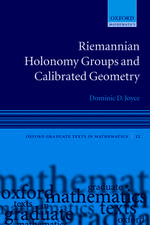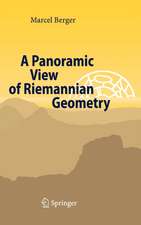Synthetic Differential Geometry: London Mathematical Society Lecture Note Series, cartea 333
Autor Anders Kocken Limba Engleză Paperback – 21 iun 2006
Din seria London Mathematical Society Lecture Note Series
- 11%
 Preț: 464.95 lei
Preț: 464.95 lei - 8%
 Preț: 446.84 lei
Preț: 446.84 lei - 14%
 Preț: 1192.30 lei
Preț: 1192.30 lei - 8%
 Preț: 423.03 lei
Preț: 423.03 lei - 11%
 Preț: 587.20 lei
Preț: 587.20 lei - 8%
 Preț: 448.27 lei
Preț: 448.27 lei -
 Preț: 349.77 lei
Preț: 349.77 lei - 8%
 Preț: 389.36 lei
Preț: 389.36 lei - 9%
 Preț: 710.05 lei
Preț: 710.05 lei - 8%
 Preț: 460.72 lei
Preț: 460.72 lei - 8%
 Preț: 402.17 lei
Preț: 402.17 lei -
 Preț: 358.07 lei
Preț: 358.07 lei - 8%
 Preț: 410.87 lei
Preț: 410.87 lei -
 Preț: 295.14 lei
Preț: 295.14 lei - 8%
 Preț: 411.75 lei
Preț: 411.75 lei - 8%
 Preț: 521.93 lei
Preț: 521.93 lei - 11%
 Preț: 604.05 lei
Preț: 604.05 lei - 8%
 Preț: 410.56 lei
Preț: 410.56 lei - 11%
 Preț: 674.85 lei
Preț: 674.85 lei - 11%
 Preț: 461.52 lei
Preț: 461.52 lei - 8%
 Preț: 531.21 lei
Preț: 531.21 lei - 8%
 Preț: 496.10 lei
Preț: 496.10 lei - 11%
 Preț: 679.16 lei
Preț: 679.16 lei -
 Preț: 369.80 lei
Preț: 369.80 lei - 11%
 Preț: 568.43 lei
Preț: 568.43 lei - 14%
 Preț: 695.32 lei
Preț: 695.32 lei - 11%
 Preț: 486.33 lei
Preț: 486.33 lei -
 Preț: 307.10 lei
Preț: 307.10 lei -
 Preț: 443.60 lei
Preț: 443.60 lei - 11%
 Preț: 482.75 lei
Preț: 482.75 lei -
 Preț: 314.39 lei
Preț: 314.39 lei -
 Preț: 311.51 lei
Preț: 311.51 lei -
 Preț: 308.63 lei
Preț: 308.63 lei -
 Preț: 313.47 lei
Preț: 313.47 lei -
 Preț: 315.11 lei
Preț: 315.11 lei - 11%
 Preț: 483.09 lei
Preț: 483.09 lei -
 Preț: 434.32 lei
Preț: 434.32 lei -
 Preț: 312.10 lei
Preț: 312.10 lei -
 Preț: 308.84 lei
Preț: 308.84 lei - 11%
 Preț: 434.75 lei
Preț: 434.75 lei -
 Preț: 396.53 lei
Preț: 396.53 lei -
 Preț: 442.68 lei
Preț: 442.68 lei - 11%
 Preț: 415.33 lei
Preț: 415.33 lei -
 Preț: 396.15 lei
Preț: 396.15 lei -
 Preț: 347.50 lei
Preț: 347.50 lei - 11%
 Preț: 415.67 lei
Preț: 415.67 lei -
 Preț: 301.69 lei
Preț: 301.69 lei -
 Preț: 393.81 lei
Preț: 393.81 lei - 11%
 Preț: 456.52 lei
Preț: 456.52 lei - 11%
 Preț: 481.53 lei
Preț: 481.53 lei
Preț: 486.35 lei
Preț vechi: 546.46 lei
-11% Nou
Puncte Express: 730
Preț estimativ în valută:
93.09€ • 96.81$ • 78.01£
93.09€ • 96.81$ • 78.01£
Carte tipărită la comandă
Livrare economică 13-27 martie
Preluare comenzi: 021 569.72.76
Specificații
ISBN-13: 9780521687386
ISBN-10: 0521687381
Pagini: 246
Ilustrații: 4 b/w illus. 142 exercises
Dimensiuni: 152 x 229 x 14 mm
Greutate: 0.34 kg
Ediția:Revizuită
Editura: Cambridge University Press
Colecția Cambridge University Press
Seria London Mathematical Society Lecture Note Series
Locul publicării:Cambridge, United Kingdom
ISBN-10: 0521687381
Pagini: 246
Ilustrații: 4 b/w illus. 142 exercises
Dimensiuni: 152 x 229 x 14 mm
Greutate: 0.34 kg
Ediția:Revizuită
Editura: Cambridge University Press
Colecția Cambridge University Press
Seria London Mathematical Society Lecture Note Series
Locul publicării:Cambridge, United Kingdom
Cuprins
Preface to the second edition (2005); Preface to the first edition (1981); Part I. The Synthetic Ttheory: 1. Basic structure on the geometric line; 2. Differential calculus; 3. Taylor formulae - one variable; 4. Partial derivatives; 5. Taylor formulae - several variables; 6. Some important infinitesimal objects; 7. Tangent vectors and the tangent bundle; 8. Vector fields; 9. Lie bracket; 10. Directional derivatives; 11. Functional analysis - Jacobi identity; 12. The comprehensive axiom; 13. Order and integration; 14. Forms and currents; 15. Currents - Stokes' theorem; 16. Weil algebras; 17. Formal manifolds; 18. Differential forms in terms of simplices; 19. Open covers; 20. Differential forms as quantities; 21. Pure geometry; Part II. Categorical Logic: 1. Generalized elements; 2. Satisfaction (1); 3. Extensions and descriptions; 4. Semantics of function objects; 5. Axiom 1 revisited; 6. Comma categories; 7. Dense class of generators; 8. Satisfaction (2); 9. Geometric theories; Part III. Models: 1. Models for axioms 1, 2, and 3; 2. Models for epsilon-stable geometric theories; 3. Well-adapted models (1); 4. Well-adapted models (2); 5. The algebraic theory of smooth functions; 6. Germ-determined T-infinity-algebras; 7. The open cover topology; 8. Construction of well-adapted models; 9. Manifolds with boundary; 10. Field property - germ algebras; 11. Order and integration in cahiers topos; Appendices; Bibliography; Index.
Notă biografică
Descriere
This book, first published in 2006, details how limit processes can be represented algebraically.
















